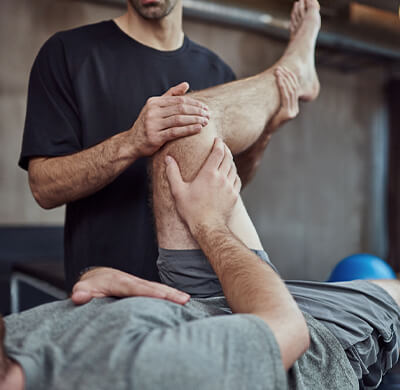
Returning to work after a work injury is a pivotal moment that comes with its own set of challenges and uncertainties. Whether it is a physical or psychological injury, the journey back to the workplace can stir up a mix of emotions. It is a process that requires not just physical healing but also mental and emotional preparation.
However, with the right approach, this transition can be navigated successfully, leading to a positive and fulfilling return to your professional life. This article is designed to guide you through the steps for a smooth and confident return to work, offering practical tips and supportive advice.
1. Communicate Openly with Your Employer and Colleagues
From the onset, maintain open lines of communication with your employer and your colleagues. Let them know about:
- Your injury
- Your current capabilities
- Any limitations you might have
This openness will help set realistic expectations and facilitate any necessary accommodations in your workplace.
2. Understand Your Rights and Benefits
Familiarize yourself with your legal rights and the benefits available to you as someone returning to work after an injury.
This includes understanding workers’ compensation, disability benefits, and any laws that protect your employment, such as the Americans with Disabilities Act (ADA).
3. Follow Your Medical Provider’s Advice
Adhering to the guidance and recommendations of your healthcare provider is crucial.
They understand your medical situation best and can provide valuable advice on how to safely return to work, including any restrictions or accommodations you might need.
4. Consider a Gradual Return to Work
If possible, arrange for a phased return to work. This could mean:
- Starting with part-time hours or lighter duties
- Gradually increasing your workload as you regain strength and confidence
A gradual return can help prevent re-injury and ease the transition back into full-time work.
5. Request Necessary Workplace Adjustments
Do not hesitate to request adjustments to your workspace or duties that can aid in your return to work. This might include:
- Ergonomic equipment
- Modified tasks
- Flexibility in your work schedule
Employers are generally willing to accommodate these requests, especially when they contribute to your health and productivity.
6. Prioritize Your Health and Well-Being
As you return to work, continue to prioritize your physical and mental health. This means:
- Taking regular breaks
- Engaging in physical therapy or exercises as recommended
- Seeking support for any emotional challenges you may face during this period
7. Set Realistic Goals and Expectations
Be realistic about what you can achieve as you return to work. Understand that it may take time to get back to your previous level of performance.
Setting achievable goals can help you monitor your progress and maintain motivation.
8. Seek Support from Coworkers and Professional Networks
Lean on the support of your coworkers, professional networks, and support groups. They can offer practical advice, emotional support, and a sense of community.
Sharing experiences and tips with others who have gone through similar situations can be incredibly reassuring.
9. Stay Flexible and Open to Changes
Your return to work might not go exactly as planned, and that is okay. Be open to making adjustments along the way, whether it is:
- Changing your work hours
- Taking on different responsibilities
- Considering a new role that better suits your current capabilities
10. Celebrate Your Milestones
Lastly, recognize and celebrate your progress, no matter how small.
Returning to work after an injury is a significant accomplishment, and acknowledging your milestones can boost your confidence and morale.
Celebrate the steps you have taken to overcome challenges and focus on the positive aspects of being back at work.
When to Visit Your Occupational Health Specialist
Visiting an occupational health specialist is crucial for managing and preventing work-related injuries or illnesses. Consider scheduling an appointment in the following scenarios:
- After being re-injured at work: Seek immediate consultation following a re-injury to ensure a proper diagnosis and treatment plan.
- For periodic health assessments: Regular check-ups can help identify potential occupational health risks and prevent the development of work-related conditions.
- When experiencing chronic pain or discomfort: If you notice persistent pain or discomfort that may be related to your work activities or ergonomic setup, get evaluated.
- If you are concerned about workplace exposures: If you are worried about exposure to hazardous substances or unsafe conditions at work, visit a specialist.
Comprehensive Work Injury Treatment Near You in Grand Junction, CO
Making the transition back to work after a work injury involves much more than physical recovery; it encompasses mental preparation, communication with your employer, and adjustments to your work environment and routines. By taking it one step at a time, seeking support, and advocating for your needs, you can reintegrate into your professional role with confidence and success. Remember, every step forward is progress.
If you need comprehensive work injury treatment near you, you do not have to look further.
WorkPartners Occupational Health specialists will be with you at every step, from diagnosis to full recovery. We will make sure you get the support you need as you return to work. You may dial (970) 241-5585 if you have questions for our helpful staff. To book a visit to the best occupational health clinic near you, please answer our online appointment request form.
We look forward to serving you!






